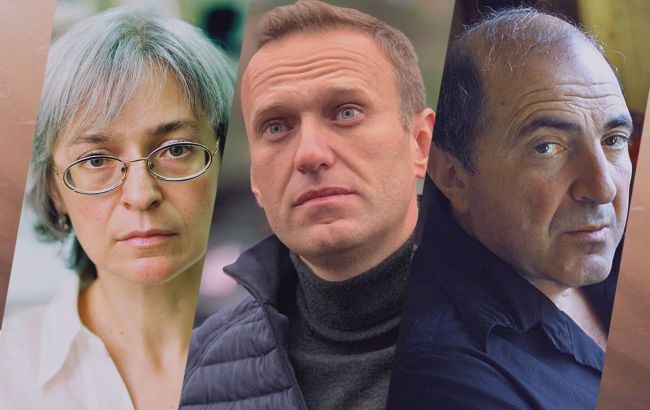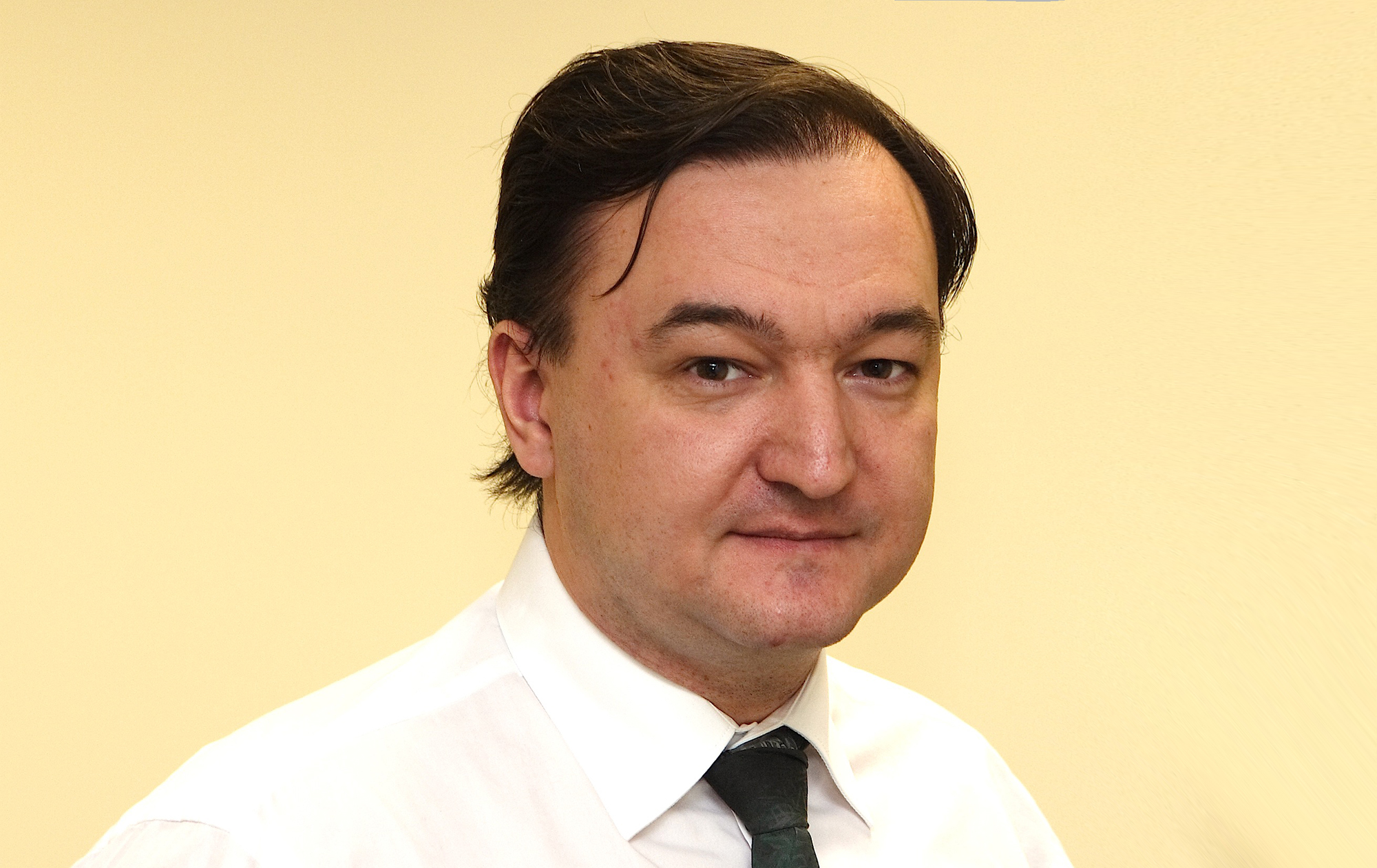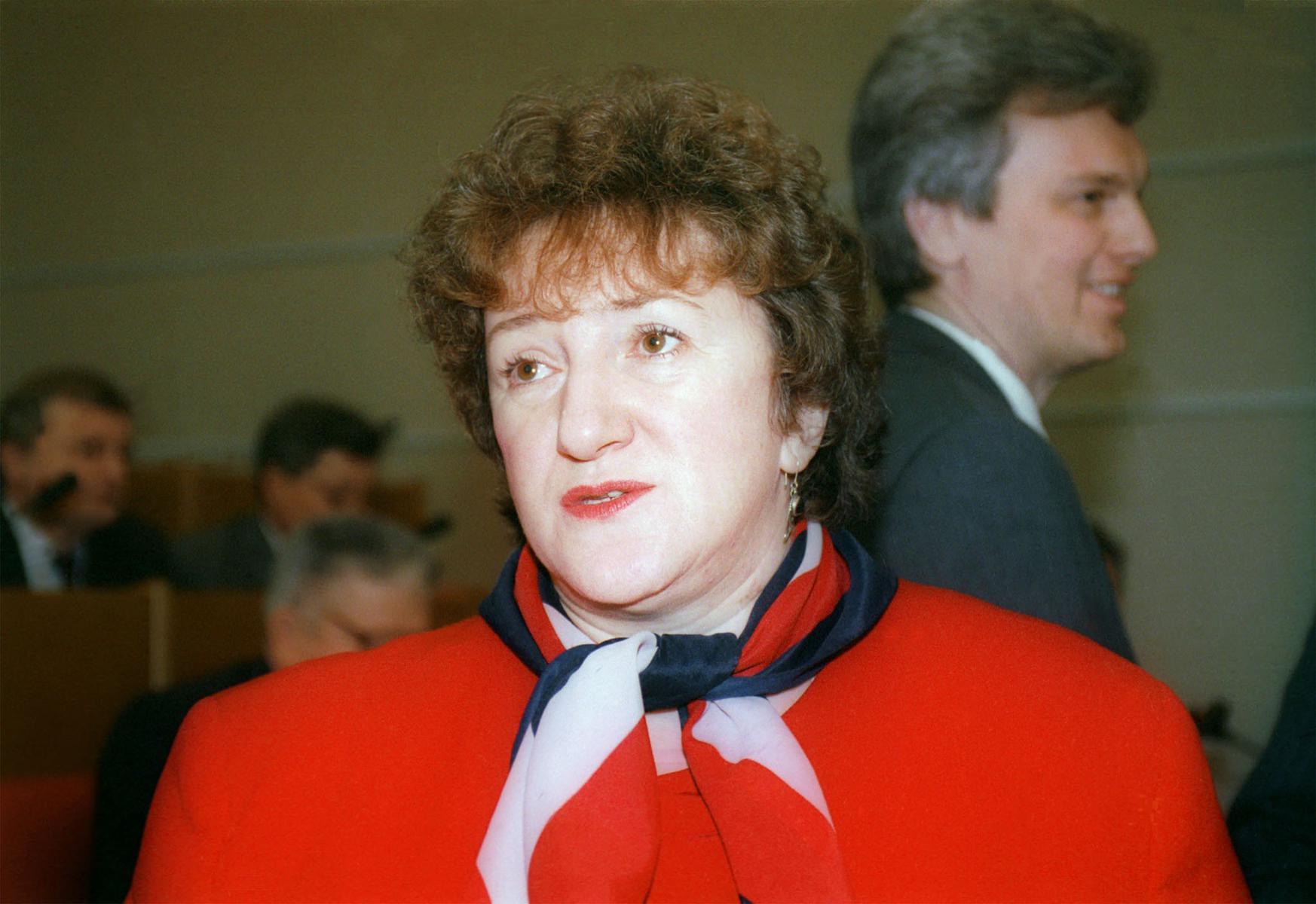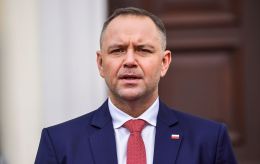Kremlin's trail of victims: Navalny, Nemtsov, and 5 other slain opposition figures
 The most prominent opposition figures destroyed by the Kremlin (Collage RBC-Ukraine)
The most prominent opposition figures destroyed by the Kremlin (Collage RBC-Ukraine)
In a Russian correctional colony, oppositionist Alexei Navalny has died. He has joined the already long list of sacral victims of the Kremlin - inconvenient oppositionists who openly criticized the Russian government and tried to do everything possible to bring about change in the country.
RBC-Ukraine recalls the most resonant deaths of oppositionists in Russia - people who were killed or died under strange circumstances.
Sources used in the preparation of the material: Radio Liberty, Wikipedia.
Alexei Navalny
Russian politician and activist. Known for his opposition stance and anti-corruption investigations into Russian officials.
In 2020, he was poisoned - he fell ill on a plane. Navalny received treatment in Germany, where traces of the poison Novichok, created in a Russian laboratory, were found in his body. Upon his return from Germany, Navalny was arrested and sentenced to 9 years in a strict regime colony in 2022.
He was found guilty in a fabricated case of fraud and contempt of court. Supposedly, Navalny was spending funds collected for the activities of his foundations. In August 2023, he was sentenced to 19 years in a high-security prison.
On February 16, 2024, Alexei Navalny died in prison. According to preliminary information, he suffered a thrombus detachment.
.jpg)
Alexei Navalny (Photo: Getty Images)
Boris Nemtsov
Political and state figure, activist, author of several reports on corruption in Russia, active critic of the political regime of Vladimir Putin. He served as a deputy, governor, minister, deputy prime minister, founded his own party, and became a member of the Coordination Council of the Russian opposition.
Boris Nemtsov was considered a possible candidate for the post of President of Russia. He actively supported Ukraine. However, the activist and oppositionist was shot on the Great Moskvoretsky Bridge in Moscow on the night of February 27-28, 2015. The murder was ordered.
Five people were convicted of involvement in the murder, but the mastermind behind it was never identified. The next day, Nemtsov was supposed to publish his report with evidence of the Russian army's involvement in hostilities in Donbas.
 Boris Nemtsov (Photo: Getty Images)
Boris Nemtsov (Photo: Getty Images)
Anna Politkovskaya
One of the most famous Russian journalists, who investigated numerous cases of human rights violations committed by Russian military and pro-Kremlin formations in Chechnya, Anna Politkovskaya was shot dead in the elevator of her building in central Moscow on October 7, 2006. She was known for her sharp criticism of the government and wrote two influential books - "Putin's Russia" and "Russia Without Putin".
In June 2014, five individuals were convicted for organizing her murder, two of whom received life sentences. However, the masterminds behind the killing have not been found or named to this day. Politkovskaya died on the birthday of the Russian president.
Human rights defenders are convinced that the journalist's professional activities were the reason for her murder. One of the versions suggests revenge by the current president of Chechnya, Ramzan Kadyrov, for Politkovskaya's criticism of him. In her reports, she exposed torture during the Chechen war and the "dirty" methods of Kadyrov's political struggle.
 Anna Politkovskaya (Photo: Getty Images)
Anna Politkovskaya (Photo: Getty Images)
Alexander Litvinenko
A former officer of the Russian FSB who became an emigrant and critic of the Kremlin, Alexander Litvinenko died in London from poisoning with radioactive polonium on November 23, 2006.
In 2000, he disappeared in the United Kingdom after publicly accusing the leadership of Russian special services of conspiring to murder businessman Boris Berezovsky. Later, he became a co-author of a book directly attributing responsibility to the FSB for the bombings of buildings in 1999.
British authorities believe that Litvinenko drank poisoned tea during a meeting with two Russian citizens, Andrei Lugovoi and Dmitry Kovtun.
 Alexander Litvinenko (Photo: Getty Images)
Alexander Litvinenko (Photo: Getty Images)
Sergei Magnitsky
Sergei Magnitsky, a lawyer and auditor at the company Firestone Duncan, who accused several employees of Russian law enforcement agencies of embezzlement, tax fraud, and corruption, died after a year in detention at the Moscow pre-trial detention center Matrosskaya Tishina, where he ended up after being arrested on the same charges.
Magnitsky, who suffered from pancreatitis, was denied access to medical care, and according to human rights activists, he was brutally beaten before his death.
He died on November 16, 2009, in pre-trial detention. The cause of death was stated as heart failure, but human rights activists note that he was not provided with timely medical assistance. The case was closed.
In 2012, the famous Magnitsky Act was adopted in the United States, imposing personal sanctions against Russian citizens believed to be involved in his death, as well as those guilty of other human rights violations in Russia. In 2013, Sergei Magnitsky was posthumously convicted of tax evasion by a court in Moscow.

Sergei Magnitsky (photo: Russian media)
Boris Berezovsky
A Soviet and Russian entrepreneur, statesman, and political figure, as well as a mathematician by training, Boris Berezovsky played a crucial role in bringing Putin to power. He held the position of Deputy Secretary of the Security Council of the Russian Federation.
Soon after Putin was elected president in March 2000, his policies began to draw criticism from Berezovsky. In the fall of 2000, Berezovsky openly became a political opponent of Putin and was forced to leave Russia. He also lost control over his Russian assets. Several criminal cases were initiated against Berezovsky.
Later, Berezovsky engaged in a bitter conflict with Putin, becoming one of the opponents of the Russian president, and fled to the United Kingdom. The reasons for his escape included allegations of money laundering and attempted forcible seizure of power. In 2013, Berezovsky was found hanged. However, according to another investigation, he was strangled. The case was closed.
 Boris Berezovsky (Photo: Getty Images)
Boris Berezovsky (Photo: Getty Images)
Galina Starovoitova
A Russian politician and State Duma deputy who actively promoted a law on lustration in Russia, which would have prohibited members of the Communist Party of the Soviet Union (CPSU) and KGB employees from holding state positions (the law, of course, was rejected). Starovoitova was also one of the most active fighters against corruption, which made her, to put it mildly, unpopular with the majority of the then State Duma.
She was shot dead in the stairwell near the door of her own apartment in St. Petersburg on November 20, 1998. The investigation lasted for 7 years. A possible organizer (a GRU warrant officer) and one of the perpetrators of the murder were convicted, while another killer disappeared without a trace. The instigator and the motives of the crime were never established. It is also unknown whether Starovoitova was truly a victim of ideological hatred or had touched someone's financial interests.
 Galina Starovoitova (photo: Russian media)
Galina Starovoitova (photo: Russian media)

